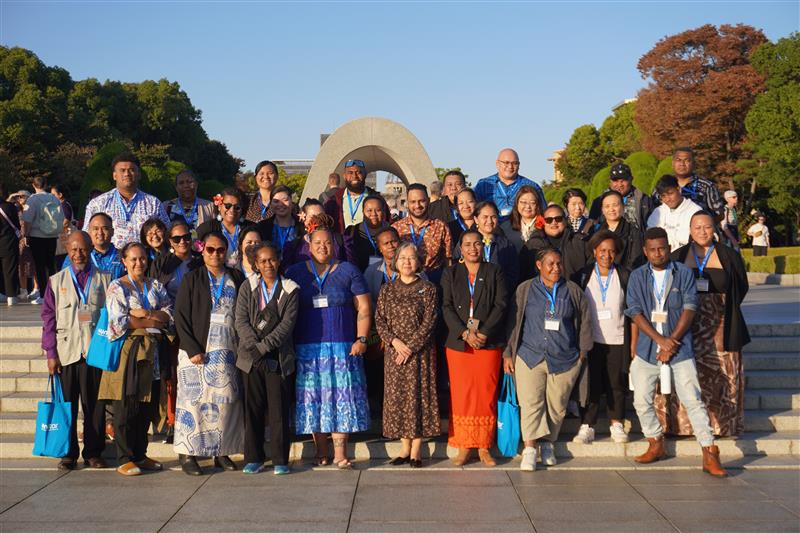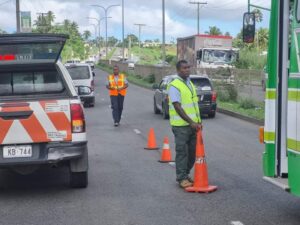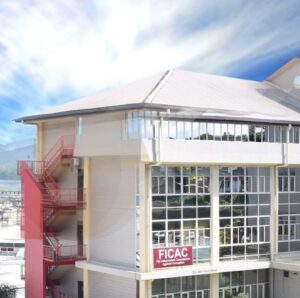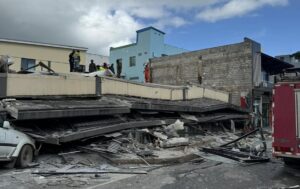Nearly 30 officials and climate experts from 11 Pacific Island countries have started a 12-day study tour in Japan as part of the United Nations Institute for Training and Research (UNITAR) programme, “Leave No One Behind: Rapid Response to Climate Crises through Early Warning Systems.”
The programme is aimed at strengthening the Pacific islands’ ability to respond to extreme weather events and climate-related hazards.
During the study tour, participants will visit key cities and sites in Hiroshima, Kyoto, Kobe, Tokyo, Tsukuba, Kashiwa, and Kasukabe, where they will take part in expert-led lectures, field visits, and group assignments. The goal is to provide the officials with practical skills and knowledge on how to use early warning systems to protect their communities from the impacts of climate change.
Welcoming delegates during the opening ceremony in Hiroshima, Chisa Mikami, Head of the UNITAR Hiroshima Office, congratulated them for being chosen as the top performers from Phase 1. She encouraged them to use this opportunity to learn from Japan’s experience and enhance their skills in building climate resilience for their own countries.
This study tour is the second phase of the UNITAR programme, which focuses on improving disaster risk management and early warning systems in small island nations that are especially vulnerable to climate change. The programme provides training to help participants better prepare for extreme weather events, including floods, cyclones, and rising sea levels, by using early warning systems to detect risks and mobilise timely responses.
The schedule includes a variety of activities, including visitations to the Hiroshima City Torrential Rain Disaster Memorial Center and Hiroshima Television Corporation to learn how the media plays a role in early warning and disaster preparedness. They will also attend lectures on local mobile app-based early warning systems that help communities stay informed about impending disasters.
- Kyoto and Hyogo: At the University of Kyoto, participants will attend expert lectures on community-based early warning systems and strategies for protecting cultural heritage during disasters. The group will also visit the Disaster Reduction and Human Renovation Institute, which focuses on Japan’s disaster recovery efforts.
- Kanto Region: At the University of Tokyo’s Kashiwa Campus, participants will learn about advanced research in global hydrological predictions and disaster management. They will also visit the Japan Meteorological Agency, Japan Aerospace Exploration Agency (JAXA), and the Kasukabe Underground Flood Protection Tank, where they will see how Japan uses technology to monitor and manage climate risks.
Following the workshop, 15 people will be invited to the third phase, a 3-day workshop in Fiji, where they will polish their project plans and develop their presentation skills.









